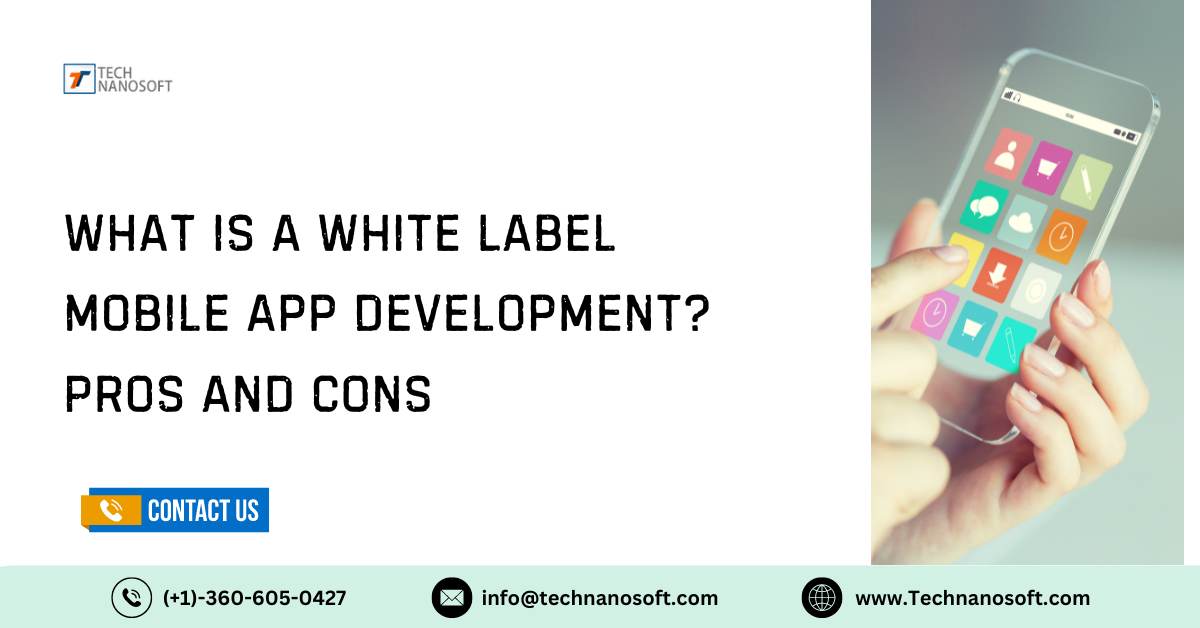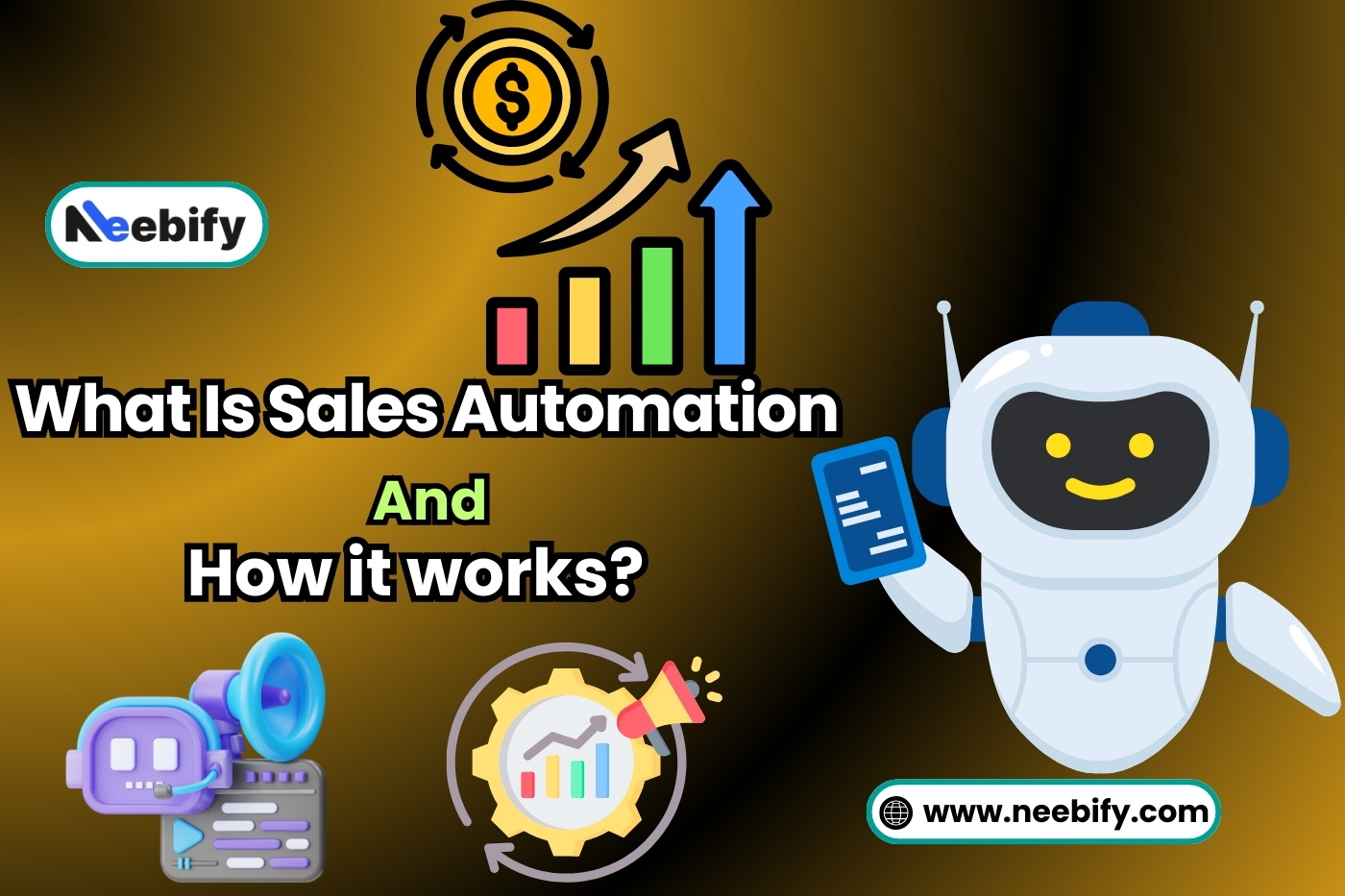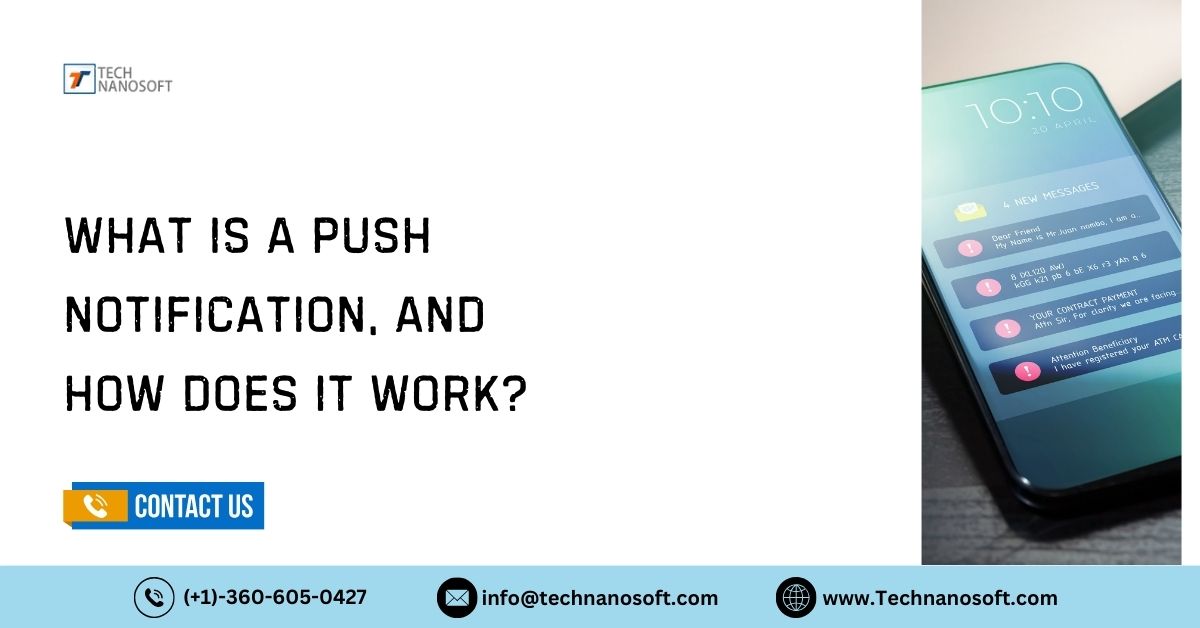What is a White Label Mobile App development?

This guide will cover white-label app development, including its pros and cons, uses in different industries, and real-life examples. Find out the big differences between custom app development and white label mobile app development to figure out which one is best for your business.
Suppose you're a startup looking for quick deployment or a large company looking for scalable solutions. In that case, this article will help you understand the ins and outs of app development, so you can make smart choices and achieve digital success.
What is a White Label App Development?
White-label app development is the process by which a company develops a fully functional and customizable mobile app that other companies can rebrand and sell as their own. With this method, businesses can offer high-quality mobile apps without having to do much development work themselves.
Businesses can quickly get a tested product on the market with white label options that save them time and money. Typically, developers create these apps with flexibility, enabling them to adapt to diverse brands and functions. This makes them a good, low-cost choice for many fields.
How Much Does It Cost to Create a White Label Mobile App?
The complexity, features, and level of customization of a white label mobile app determine its price. It can cost anywhere from $10,000 to $50,000 to make a white label software. On one end of the price range will be simple apps with basic features. On the other end, there will be more complex apps with advanced features and more ways to customize them.
The total cost may also go up if you need to pay for ongoing maintenance, updates, and assistance. To make sure the white-label mobile app development process goes smoothly, businesses should think about these things and plan their budgets properly.
Pros of Developing a White Label App
Save Money
White-label apps save money because you don't have to do much development work yourself. Businesses can save a lot of money, time, and resources on growth. Companies can purchase a pre-made app instead of hiring a mobile app builder to create one from scratch. This saves them money that they can use for other important business activities.
Easy To Deploy
white label software prioritize ease of use. Having already built and tested the main features, businesses can quickly launch an app with their branding. This efficient process cuts down on the time it takes to get a product to market, which lets businesses start helping customers more quickly.
Quick and Simple Business
White label app building simplifies business operations by providing a pre-configured and ready-to-use solution. Businesses can get into the market quickly without having to create, code, and test an app from scratch. Businesses can use this method to focus on marketing, acquiring new customers, and growing. It utilizes a current and reliable app framework.
No Worry About Maintenance
One of the best things about white-label apps is that the company that makes them usually takes care of their upkeep and updates. Businesses don't have to worry about bug fixes, security patches, or adding new features because the app provider takes care of those things. This keeps the app up-to-date and working, which frees up resources for other important business chores.
Cons of Developing a White Label App
Limited Customization
White-label apps have some customization options, but they may not be flexible enough for businesses with very specific needs. Companies might need help to add custom features or processes, which could make the app less useful and less in line with their brand.
Potential Quality Issues
White label apps from different companies can be very different in quality. Businesses need to be extremely careful when choosing a development company to make sure they get a good product that they can rely on. Badly made apps can cause problems with their functionality, unhappy users, and higher long-term support costs.
Dependency on the Provider
If you use a white label app, you have to rely on the provider for help, updates, and maintenance. If the service provider's services deteriorate or cease operations, the company using the app may face significant challenges. This dependency can also make it harder for the business to shape how the app grows and improves in the future.
Lack of Differentiation
White label apps often serve multiple companies, making it difficult for the market to distinguish between them. It can be hard for a company to stand out when competitors offer similar apps. To stand out from other companies that use the same app structure, businesses need to spend money on their branding and marketing.
Challenges of White Label App Development
Security Concerns
White label apps can pose security risks. Companies often need more control over their security measures and procedures because of the app's third-party development. This can lead to the emergence of insecure areas, which malicious individuals may exploit.
To lower these risks, businesses need to choose a reputable provider that has strict security rules and changes the app often to fix bugs and threats. Companies should also do full security checks on the app to make sure it meets their unique security needs.
Less Possibility of Customization
The fact that you can only change a few things about white-label apps is a big problem. Custom features or design elements can be challenging to incorporate into these apps, as their flexibility caters to a wide range of business types.
This limitation might make it harder for the app to fit in with the company's name and meet its goals for user experience. Companies might have to give up some features or spend more money to get the amount of customization they want, which could make the project cost more and take longer to complete.
Uses of White Label App Development
Traveling
White label apps in travel industry give companies their own unique solutions for booking and operating tours. These apps let you book flights and hotels, keep track of your plans, and get real-time trip updates. A white-label app can help travel companies quickly enter the market with a reliable, feature-rich app.
This improves the customer experience without the need for much in-house development. This method helps travel companies focus on their business and customer service. It also provides a professional and helpful mobile app.
Public Catering
White label apps make things easier for restaurants, bars, and food delivery services that do public catering. These apps can take care of online sales, reservations for tables, menus, and programs that reward customers for coming back. Catering companies can provide a customized experience for their customers by using a white label option.
This can result in higher satisfaction and increased interest. White label apps assist catering services in staying current with trends and enhancing their online presence affordably. Catering services can easily set up and customize these apps, saving time and money.
Retail
White label apps are helpful for retail stores because they allow them to offer online shopping, manage inventory, and assist customers. Retailers can use apps to make a custom shopping experience with product catalogs, secure payments, and special offers. In the fast-paced world of e-commerce, being able to release a mobile app quickly helps stores stay competitive. White label solutions also make it easy to connect to current systems, which keeps things running smoothly and quickly.
Taxi Services
White label apps help taxi services by letting them offer features like booking rides, figuring out fares, tracking in real time, and rating drivers. Taxi companies can use apps to provide a modern and user-friendly experience for customers. This helps them compete better with larger ride-hailing services. With the white label option, taxi companies can quickly release a branded app.
This cuts down on the time it takes to market and the cost of development. This method allows them to focus on improving services and making customers happier. They don't have to worry about the technical details of creating an app from scratch.
READ ALSO- The Main Difference Between Android and iOS Mobile Apps
Examples of White Label Mobile Apps
GloriaFood
GloriaFood is a well-known white label mobile app made for restaurants and food delivery services. It includes everything you need to manage your menu, take online orders, and reserve tables. You can customize the app to align with the restaurant's brand and enhance operational efficiency.
The app has features like tracking orders, customer reviews, and built-in payment options. A powerful tool for improving customer engagement and happiness while making the restaurant's work easier.
Apple Pie
Appy Pie provides a white label mobile app builder. This tool allows businesses to create and customize their mobile apps. Users do not need to have coding knowledge. This tool helps a lot of different types of businesses, like retail, events, and hospitality.
Users have many options to choose from, including push alerts, in-app purchases, and social media features. Appy Pie's white label solution helps companies create and use apps fast, improving their online presence and customer engagement.
RideYellow
RideYellow is a white-label app option for taxi and transportation services. It encompasses real-time tracking, fare estimation, and payment handling, thereby catering to all aspects of ride-hailing. Taxi companies can add their name and colors to the app, making it look and feel like the real thing.
RideYellow provides taxi services with user-friendly features for drivers and passengers. These features help them compete with larger ride-hailing apps. This ultimately leads to increased happiness for everyone involved.
My Music App
The My Music App is a mobile application that integrates seamlessly with various music streaming services. Businesses can offer customized music streaming with options like sharing on social media, creating playlists, and listening offline. Companies can brand the app to fit their image, which gives users a more tailored experience.
This white-label option is great for companies that want to get into the fast-paced music streaming market. It provides a professional and engaging platform for them. They don't have to spend a lot of money to create an app from scratch.
How does a white label mobile app development differ from custom app development?
Custom app development entails creating a cellphone app from scratch to meet a client's specific needs and goals. These apps specifically design features and functions that match the client's business practices and meet the needs of their users. Clients who have extensive customization options determine the appearance, functionality, and branding of the app.
However, because of all the customization involved, the creation process usually takes longer and costs more at the start. Companies seeking a highly tailored solution to their specific needs can greatly benefit from custom app development.
How Technanosoft Assists You in White Label Mobile App Development
Technanosoft specializes in creating white label mobile apps tailored to meet the unique requirements of individual businesses. Our expert team takes care of the whole process, from the initial design to the rollout, making sure it goes smoothly and quickly. We provide customizable features, robust security measures, and continuous support to ensure the smooth operation of the app.
Businesses can quickly enter the market with a high-quality, branded mobile app if they work with Technanosoft. This saves them time and money.
Our services can make your app more noticeable. They can also help maintain customer interest and promote business growth. You won't have to worry about handling these tasks on your own.
FAQs About White Label Apps Development
Q.1- what is a white label app industries can benefit from white-label app solutions?
A- White-label apps are flexible and can help many fields, such as education, healthcare, transportation, shopping, and more. With them, businesses of all sizes can expand their options.
Q.2- What's the difference between custom app development and white-label app development?
A- Custom app development means making an app from scratch to fit specific needs. white label meaning, on the other hand, offers ready-made solutions that businesses can rebrand and change to fit their needs.
Q.3- What kind of help is there for white label apps?
A- White label app providers with a good reputation offer ongoing assistance, such as maintenance, updates, and fixing problems. This makes sure that the app stays useful and up-to-date, so users have a smooth experience.
Q.4- Is there a security risk with white-label applications?
A- When making white label apps, security is very important. Providers use strong security steps to keep user data safe and ensure the integrity of apps. However, companies should also conduct security checks and studies to mitigate any potential risks.









